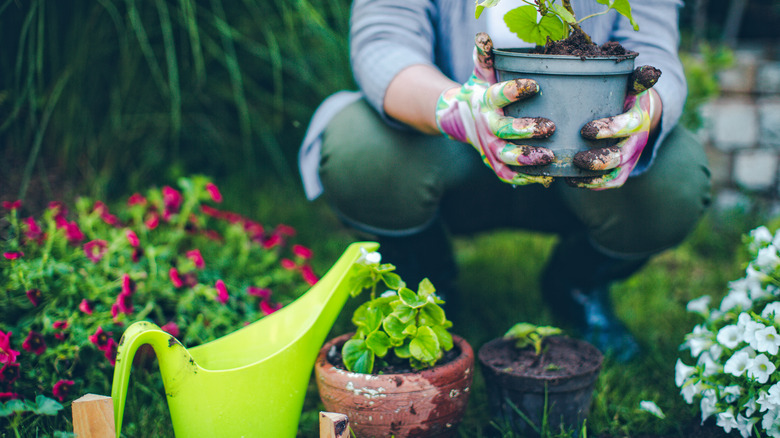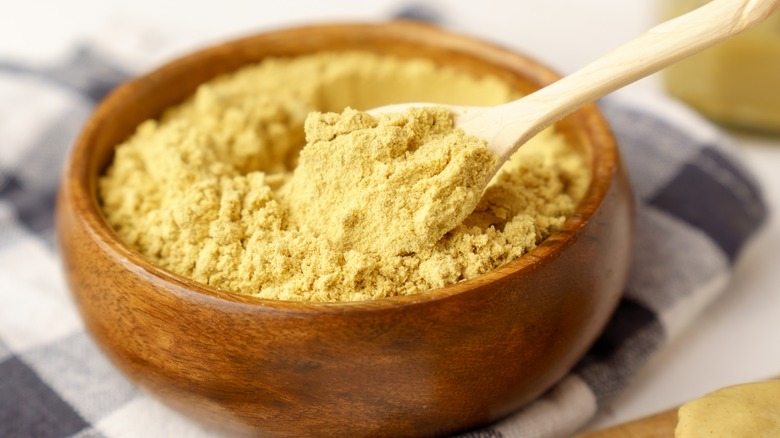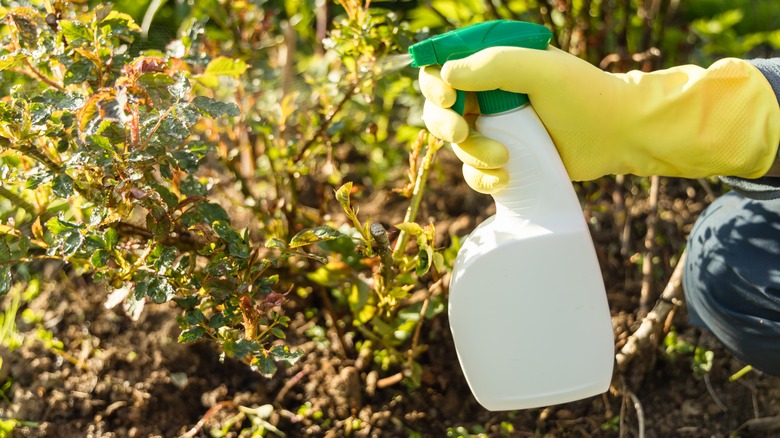The Unexpected Kitchen Ingredient That Keeps Pests Out Of Your Garden
Mustard powder, an age-old culinary staple gracing kitchen shelves across continents, is gaining newfound appreciation among gardening enthusiasts. While you might know it best for adding a zesty kick to your meals, it's now standing tall as a formidable herb that defends the garden from pests. The bane of every gardener's existence often comes in the form of tiny aphids, munching caterpillars, or the slippery trail of slugs. Despite their size, these pests have a knack for causing significant damage to the plants you've lovingly cared for.
You might wonder: What's the secret behind mustard powder's ability to deter these pests? It's all in its roots. When you look at mustard powder, you're not just seeing a spice, but a potent blend of natural compounds derived from the minuscule seeds of the mustard plant. While these compounds delight our taste buds, they're decidedly off-putting to many of the common pests that threaten gardens. The very essence of mustard establishes an uninviting atmosphere for these unwelcome guests.
Furthermore, suppose your gardening ethos leans organic, and you're concerned about the environmental and health impacts of synthetic pesticides. In that case, that jar of mustard powder in your pantry might just be the unsung hero. It's an uncomplicated and effective solution, and its affordability and easy availability make it an attractive choice for many gardeners.
Preparing mustard solutions for pest control
To create a robust mustard pour, the initial step requires a bit of preparation on your end. Dive into your storage or make a quick run to the store to gather the essentials: a strong mustard powder, clean water, and a reliable bucket. These might seem like simple, everyday items, but in combination, they pack a punch against unwelcome garden pests. After you've rounded up these items, embark on the creation process. Take a gallon-sized bucket and fill it with water. Next, pour in 1/3 cup of mustard powder and blend it all together. This mixing is pivotal, ensuring the mustard's essence is infused into every drop of water.
Yet, the magic of mustard doesn't stop at soil-based applications. Your plants, with their broad leaves, often become the target of pests like aphids and caterpillars. These critters are notorious for their love of fresh greens, but you can deter them with your mustard concoction. For this, a spray solution is ideal. In a spacious mixing bowl, combine 2 fluid ounces of mustard powder with a gallon of water. This blend might seem mild, but it's potent enough to send those pests packing. Your arm strength comes into play here; a vigorous stir is necessary to ensure the mustard powder integrates seamlessly with the water, leaving no residue or clumps behind. With a steady hand, pour this golden solution into a spray bottle, prepping it for its protective mission.
Applying mustard solution to your garden
With your mustard solution in hand, you're ready to shield your plants from those pesky invaders. A couple of essential tidbits to remember during this process: Opt for pouring or spraying during the cooler times of the day, like the early hours of the morning or as dusk approaches. Also, it's essential to remember that while mustard powder serves as a natural enemy for pests, you must use it judiciously to avoid inadvertently harming your plants or stunting their growth. Before going all out, dab a bit of the solution on a portion of the plant to see how it reacts. It's always better to be safe and ensure the plant doesn't negatively respond to the mustard concoction. Additionally, keep pets away from the garden during this time, as mustard can be toxic to them.
As you survey your garden, pinpoint which plants are the favorite hangout spots for pests. Focus your efforts there, either pouring the mustard water on the soil or generously spritzing it on the plant itself. Moreover, while you aim to fend off pests, it's vital to be discerning. Beneficial garden bugs, like ladybugs and bees, are crucial to your garden's ecosystem. When spraying, be deliberate, targeting only areas with evident pest activity.
In some instances, especially if you're dealing with a stubborn pest infestation, you may find yourself reaching for that bucket or spray bottle every few days. This persistence is essential to see a noticeable reduction in pest numbers. And if a rain shower happens to pass through, it's time for another round of the mustard solution, as the rain likely rinsed away your previous efforts.


